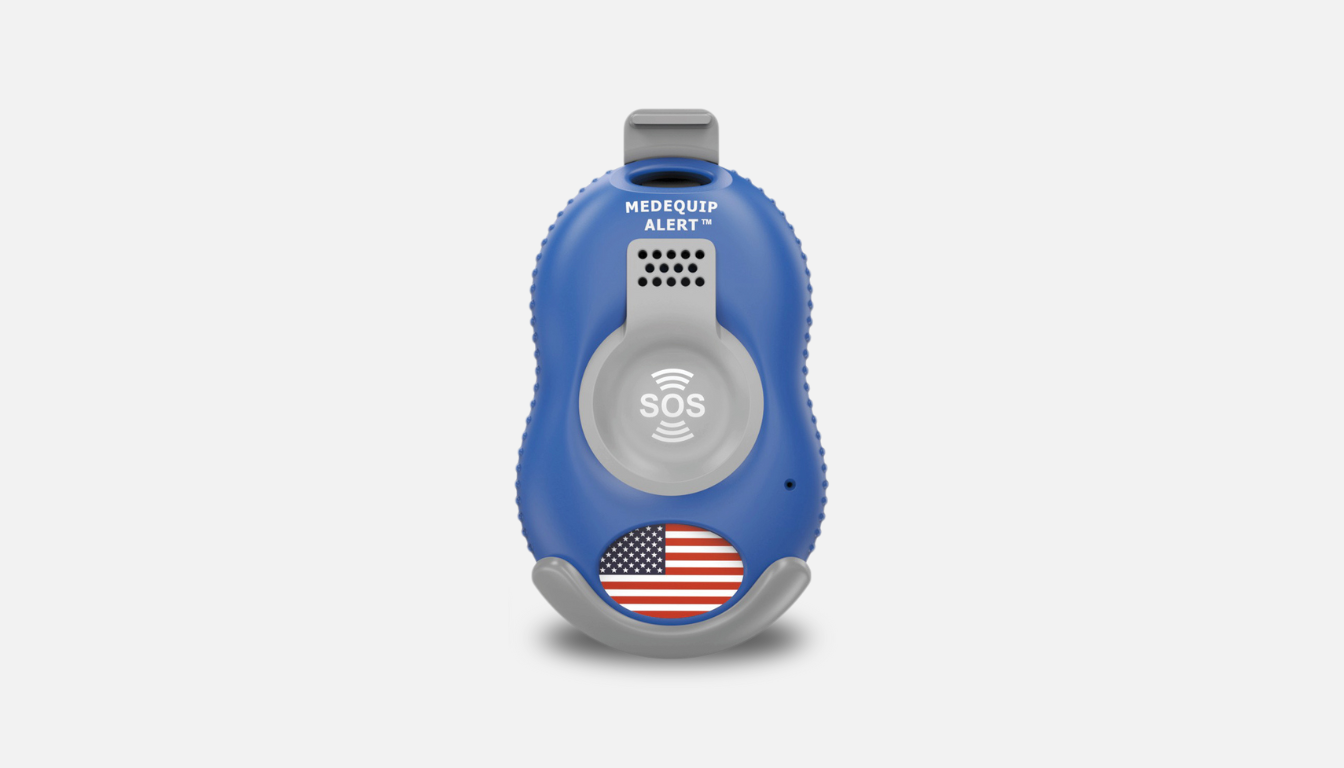
The Lifesaving Importance of Medical Alert Devices for the Elderly
As people age, the risks to their health and safety can increase significantly. From chronic illnesses and medication management t...

Seniorcenters.com is a free resource helping seniors and senior centers across America. Learn about our editorial processes.
As we navigate the journey of aging, both for ourselves and our beloved family members, planning for the future becomes increasingly important. It’s a topic that can sometimes feel daunting, evoking thoughts of vulnerability or loss of independence. However, embracing proactive planning, especially concerning legal and financial matters, is one of the most empowering steps you can take to ensure peace of mind and maintain control over your life and wishes. One of the most vital tools in this process is the Power of Attorney (POA).
This comprehensive guide will demystify the Power of Attorney, explaining what it is, its various forms, and why it’s an indispensable document for seniors and their families. We’ll walk you through the process of establishing one, help you understand how to choose the right person to act on your behalf, and shed light on common misconceptions. Our aim is to provide you with clear, authoritative, and highly practical information to help you make informed decisions, safeguard your interests, and ensure your voice is heard, even if you’re unable to speak for yourself.
At its core, a Power of Attorney (POA) is a legal document that grants one person (the “Agent” or “Attorney-in-Fact”) the authority to act on behalf of another person (the “Principal”) in specified matters. This authority can range from managing financial affairs to making healthcare decisions. It’s a powerful tool that allows you to designate a trusted individual to handle your affairs if you become unable to do so yourself, whether due to illness, injury, or simply being unavailable.
The importance of a POA for seniors cannot be overstated. As individuals age, the likelihood of experiencing a health event that temporarily or permanently impairs their ability to make decisions increases. Without a valid POA, your family might have to go through a lengthy, expensive, and often emotionally taxing court process to gain guardianship or conservatorship over your affairs. This can lead to delays in critical medical care, difficulties in managing finances, and added stress during an already challenging time. A well-executed POA ensures that your wishes are respected, your assets are protected, and your care is managed by someone you trust implicitly, avoiding potential legal complications and family disputes.
Understanding the different types of POAs is crucial, as each serves a specific purpose and grants varying levels of authority. Choosing the right type depends on your individual needs and circumstances. Here’s a breakdown of the most common types:
A General POA grants broad authority to your Agent to handle all financial and business matters on your behalf. This includes managing bank accounts, paying bills, buying or selling property, making investment decisions, and filing taxes. It typically becomes effective immediately upon signing and remains in effect until you revoke it, you become incapacitated, or you pass away. Because of its broad scope, a General POA is often used for convenience, such as when you are traveling or temporarily unable to manage your affairs, but it ceases if you lose the capacity to make your own decisions.
The Durable Power of Attorney is similar to a General POA in that it grants broad authority over financial and business matters. However, its defining characteristic is that it remains in effect even if the Principal becomes incapacitated. This “durability” clause is what makes it an essential document for long-term planning, particularly for seniors. Without the “durable” language, a POA automatically terminates upon the Principal’s incapacitation, precisely when it might be needed most. A Durable POA can be effective immediately or “springing” (see below).
A Springing POA does not become effective until a specific event or condition occurs. This “triggering event” is usually the Principal’s incapacitation, as determined by a physician or a panel of physicians, as specified in the document. While this offers a sense of security that your Agent won’t have authority unless absolutely necessary, it can sometimes lead to delays or disputes regarding when the “springing” condition has been met. Clear and unambiguous language is vital in a Springing POA to avoid potential legal challenges.
A Special or Limited POA grants your Agent authority only for specific tasks or for a limited period. For example, you might grant someone a Special POA to sell a particular piece of property on your behalf, or to manage your affairs while you are on an extended vacation. Once the specified task is completed or the time period expires, the POA automatically terminates. This type is useful when you need assistance with a very particular matter without granting broad authority.
Distinct from financial POAs, a Medical Power of Attorney specifically grants your Agent the authority to make healthcare decisions on your behalf if you are unable to do so. This includes decisions about medical treatments, surgeries, medications, and end-of-life care. It becomes effective only when you are deemed medically incapacitated. This document works in conjunction with other advance care planning documents, such as a Living Will or Advance Directive, which outline your specific wishes regarding medical treatments. While a Living Will states your preferences, a Medical POA designates a person to ensure those preferences are followed and to make decisions not covered by the Living Will.
Here’s a table summarizing the key differences between the main types of POAs:
| Type of POA | Scope of Authority | When It Becomes Effective | When It Terminates | Key Benefit |
|---|---|---|---|---|
| General POA | Broad financial & business matters | Immediately upon signing | Principal’s incapacitation, revocation, or death | Convenience for active management |
| Durable POA | Broad financial & business matters | Immediately or upon specific event (springing) | Revocation or death of Principal | Remains effective during incapacitation |
| Springing POA | Broad financial & business matters | Upon a specified event (e.g., incapacitation) | Revocation or death of Principal | Authority only when truly needed |
| Special/Limited POA | Specific tasks or limited time period | Immediately upon signing | Completion of task or end of period | Grants authority for a precise purpose |
| Medical POA | Healthcare decisions only | Upon medical incapacitation | Recovery of capacity, revocation, or death | Ensures healthcare wishes are followed by a trusted person |
Selecting the right person to be your Agent is perhaps the most critical decision in establishing a Power of Attorney. This individual will have significant control over your affairs, so trust, reliability, and good judgment are paramount. Consider the following qualities and considerations:
You can name more than one Agent, but it’s crucial to specify how they will act:
What to Avoid: Avoid choosing someone who has a history of financial irresponsibility, addiction, or a tendency to be easily influenced. Also, consider potential conflicts of interest, especially if the Agent is also a beneficiary of your will.
Creating a Power of Attorney is a formal legal process that should not be taken lightly. While it might be tempting to use generic online forms, especially if you’ve considered creating your own will, the complexities of state laws and individual circumstances make professional legal advice highly advisable for a POA.
The effectiveness and termination of a Power of Attorney are critical aspects to understand:
A Power of Attorney typically terminates under the following circumstances:
Despite its importance, there are several common misunderstandings surrounding the Power of Attorney:
It’s important to distinguish a Power of Attorney from guardianship or conservatorship, as these terms are often confused:
The primary benefit of a well-drafted and properly executed Durable Power of Attorney is that it allows you to maintain control over who makes decisions for you and how those decisions are made, potentially avoiding the need for court-appointed guardianship or conservatorship.
The Power of Attorney is more than just a legal document; it’s a testament to thoughtful planning, a safeguard for your future, and a gift of peace of mind for both you and your family. By proactively establishing a POA, you ensure that your wishes are respected, your assets are protected, and your care is managed by someone you trust, even if circumstances change. It empowers you to maintain dignity and control over your life, no matter what the future holds.
Don’t let the complexities deter you. Take the initiative to discuss your options with your loved ones and consult with an elder law attorney. Investing time in this crucial planning now will provide invaluable security and comfort for years to come, allowing you to focus on living a fulfilling life, confident that your affairs are in capable and trusted hands.
No results available
Browse thousands of Senior Centers from around America. Senior Centers are an integral part of society and are the center of life for many seniors and aging adults.
Find a Senior Center which fits your needs using our search feature and keep up to date on all the latest news.
Click the icon to Ask Anything!
Advertisers are not endorsed by SeniorCenters.com or any senior center listed.
This site is not endorsed by or affiliated with any senior center or organization listed.
Just one helpful email per month – no clutter, just value.